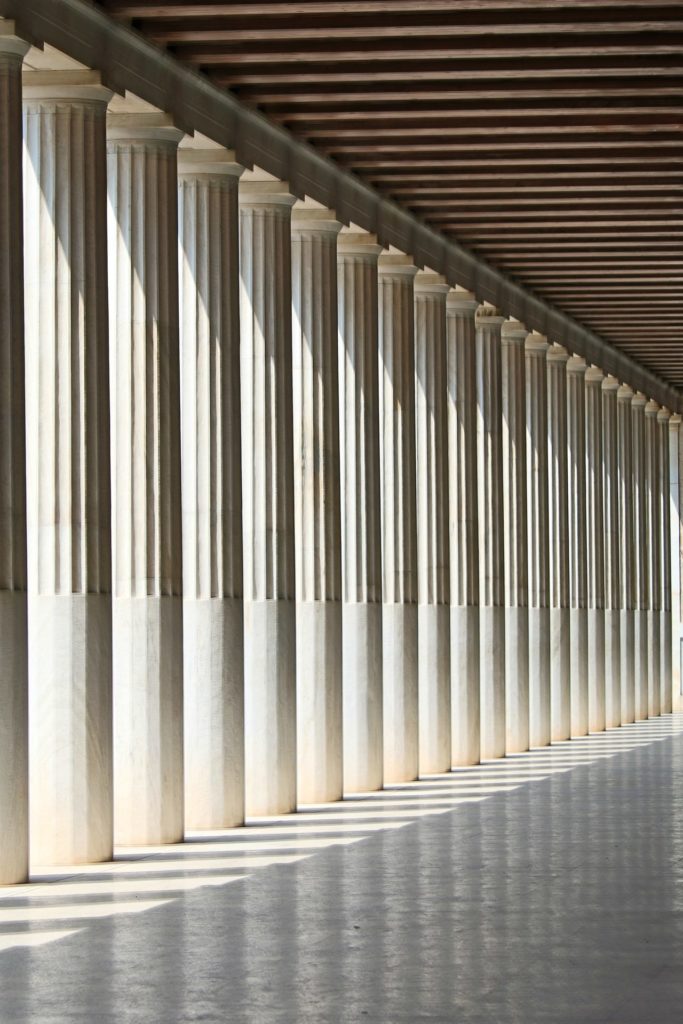"The term "illiberal" democracy is relatively recent and comes from the Anglo-Saxon world. It refers to a type of partial, low-intensity, empty democracy, a hybrid regime or a guided democracy, with technocratic or even oligarchic tendencies, where according to some the voice of the citizenry is less and less important. It is also used to designate political projects that reject the liberal ideological model, in the American sense of "progressive"."
In recent decades we have witnessed the emergence of various political programs in countries as diverse as the United States, Russia, Brazil, Hungary and Poland, which have a number of aspects in common. Along with economic liberalism in most of them, a certain nationalist vision clearly opposed to illegal immigration, as well as a markedly anti-communist ideology (with some logical peculiarities - these days dramatically present - in the case of Russia), we can discover a "cultural" Christianity that leads them to reject some "dogmas" of Western secularized society (abortion, euthanasia, gender ideology or the "new prophecies" of climate change), while they seem to downplay the importance of other Christian values (peace, non-violence, justice, the poor and care for creation).

It seems to us that it might be of interest to focus for a moment on a specific aspect of the current complex situation, specifically on the religious factor of these illiberal democracies that seem to be on the rise in various countries of the Western world. Those who approach this phenomenon from a Manichean and simplistic view run the risk of not understanding what is really happening in countries of the importance of the United States, Russia, Brazil or Eastern Europe and, here among us, the political project of Vox.
Like it or not, the reality is that the vast majority of the earth's inhabitants are people with a religious sense of life. The secularist or anti-religious minorities in Europe and America may have confused the process of Western secularization of recent decades with the gradual disappearance of religious sentiment in the modern world. By attempting to implement a model of society and democracy that is alien, if not completely contrary to the religious sentiments of many millions of people, we believe that they have unwittingly provoked a reaction of religious and political affirmation that they were not counting on and that is not without risk.
Alexis de Tocqueville was convinced that democracy could not survive the loss of Christian faith. "If a democratic nation loses its religion -wrote the preeminent French thinker, falls prey to fierce individualism and materialism and democratic despotism and inevitably prepares its citizens for slavery." We believe that the illiberal politicians to whom we are referring are situated and act along the same lines.
In view of the voices of alarm raised by some regarding the advance of what they have called the "far-right"In Europe and America, it is worth asking whether it would not be wiser to continue advancing towards societies that are more respectful of all people and their ways of thinking. The problem arises when ideological proposals appear to be incompatible with each other. If one tries to impose itself on the other, there is a risk that the other will then try to impose itself on it. We believe that the solution lies in understanding real freedom in our democratic societies.
It may be time to stop trying to monopolize one type of society and impose it on others, one way or the other. While religious people in the West have understood for many years that there are people who do not share their beliefs and ideals, non-religious people must respect those who do. We believe that goods such as freedom of religion, freedom of education and freedom of expression, as well as the possibility of not financing through taxes activities sanctioned by laws that seriously repulse the conscience of many people (such as abortion, euthanasia or everything related to gender ideology), as well as the duty to respect just laws and those who do not think as we do, should be especially protected in our societies.
If this is not understood, many people may feel attacked and therefore feel the need to defend themselves. It is important for bigots of all stripes to take this into account if we are not to repeat some of the more famous mistakes of the past.
On the other hand, there is a risk that politicians may use religion as an excuse to make politics and bring to it the polarization of the "political arena". In this case, it would be necessary to distinguish between the defense of religious freedom and the ideas that represent a majority of citizens and the partisan use of religious beliefs by political leaders who may be tempted to set themselves up as their interpreters, a role that we believe does not correspond to them. In a phrase attributed to Unamuno, "a possible crisis of politics and religion can be found in the practice of religion as politics and politics as religion."
There is a film entitled "Hidden Life", by the American Terrence Malick, which tells the true story of Franz Jägerstätter, an Austrian farmer beatified a few years ago by the Catholic Church who refused to swear an oath to Hitler during the Second World War, sacrificing everything, including his life. The story he tells can illustrate the strength of some believers' convictions, which should never be violated.
As Benedict XVI once said "He who bows before Jesus cannot and must not prostrate himself before any earthly power, no matter how strong it may be. We Christians kneel only before God, before the Blessed Sacrament". We end with this sentence because it seems to us that the understanding of the religious phenomenon, especially in the West, has become a necessity if we want to achieve societies where diverse mentalities and ways of life can coexist in peace, without trying to impose one on the other, as has unfortunately happened in the past.







